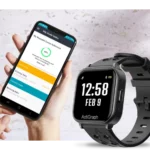Early phase clinical research (phase 1 and 2a) focuses on characterizing the behavior of the investigational product in humans, finding the optimal dose, and evaluating safety parameters. Whether clinical teams choose to sell or license their molecule before it reaches late-stage development, or conduct the late-stage development themselves, it is crucial to understand the requirements of early market access preparation. Including the patient’s voice using electronic Patient Reported Outcomes (ePROs) in early phase studies can have a significant impact on the success of clinical development and market access. ePRO provides key information to clinical development teams that corresponds directly to patient feedback, enhancing the market value of the newly developed molecule and affecting future decision-making.
ePRO allows researchers to focus on relevant endpoints
In phase 1 and 2a trials, biotech leaders and project managers are often not focused on marketing steps and processes, which can reasonably be perceived as being very far away. By incorporating the patient’s perspective and utilizing ePRO data as early as phase 1b, clinical teams can explore the patient experience early in the process of drug characterization. Having this insight from the patients themselves will generate significant time savings during the later stages of development. The collection of ePRO information from early phase development will allow relevant decisions to be made when selecting endpoints for later phase trials, such as those for efficacy related to patients’ symptomatology or quality of life. Including ePROs at this early stage will also help to identify relevant PROs that would be more applicable to the study population, making it easier to determine which PROs to select as endpoints.
Collecting and analyzing ePROs allows early phase clinical teams to compile robust data that will help inform how future clinical trials are designed and shape the selection of relevant endpoints. As such, early inclusion of ePROs brings both significant scientific and strong time saving advantages to the whole clinical development process. When teams don’t incorporate PROs early, they risk not focusing on relevant endpoints in later stage development, missing what matters most to patients, and potentially not designing their late phase trials in the way that makes the research meaningful to the patient population.
ePRO increases the understanding of the product in development
Integrating ePROs early in drug development alongside traditional measures can support a more comprehensive understanding of the benefits and risks of a new drug. As early phases serve to characterize the optimal dose, using ePROs to report on the how patients tolerate the therapy and their ability or desire to adhere to a range of doses is highly valuable. This can add unique data to inform dose optimization. Furthermore, it has been shown that patient-reported data can add information to expand on lower grade clinician-rated adverse events. The Friends of Cancer Research Group convenes industry, academic, regulatory, and patient advocate representatives to discuss opportunities and challenges for using PROs in early phase clinical trials. The group recently published recommendations around PROs, highlighting their usefulness in characterizing tolerability and supporting dosage optimization. The article also provided a framework for incorporating PROs into dosage optimization studies and discussed opportunities for using PRO findings from early phase studies to inform later phase study design. These early investigations, when well-structured and well-implemented, enhance traditional safety data for regulatory decision-making.
ePRO enhances the market value of the investigational drug
The early phase clinical team may sell or license their molecule before it reaches late-stage development, in which case it is unlikely that they will run phase 3 studies themselves. However, even if the biotech companies performing early phase research sell the product in phase 2, the more they anticipate market needs the higher their product’s value will be. Patient feedback related to symptoms and quality of life has become essential in clinical research, as demonstrated by the rising importance of PROs in regulatory decision-making. Even if there is still room for improvement on the comprehensibility of labeling statements based on PRO endpoints, the increase in text based on PRO endpoints in product labels is encouraging. Companies anticipating future market access and regulatory negotiations through relevant ePRO strategies will be well-positioned, and a project that fails to characterize the tolerability and efficacy of the new drug from the patient’s point of view will be more likely to struggle.
As well as including ePROs in their early-stage clinical trials, biotech companies and early-stage clinical development teams may also include the patient’s voice via direct interactions with patient advocacy associations, to develop a clear understanding of patient needs and of the specific impacts of the disease on the patient’s quality of life. This must be considered on a global scale as understanding the reality of the standard of care in different countries will bring value to the project when anticipating market access. Combined with ePRO data collection, these direct interactions with patients can help lay the foundations for phase 1b/2 onward.
Incorporating ePROs early in drug development has several advantages that should be considered. In addition to saving time and contributing to trial design in later stage development, ePRO enhances both the scientific and market value of the entire project by providing relevant information to optimize dose selection, strengthen the clinical program, and anticipate market access. Although incorporating patient-reported information from early stages is a relatively new concept, it is expected that this will help to characterize the risk-benefit profile of investigational drugs and will provide important information for regulatory decision-making.














